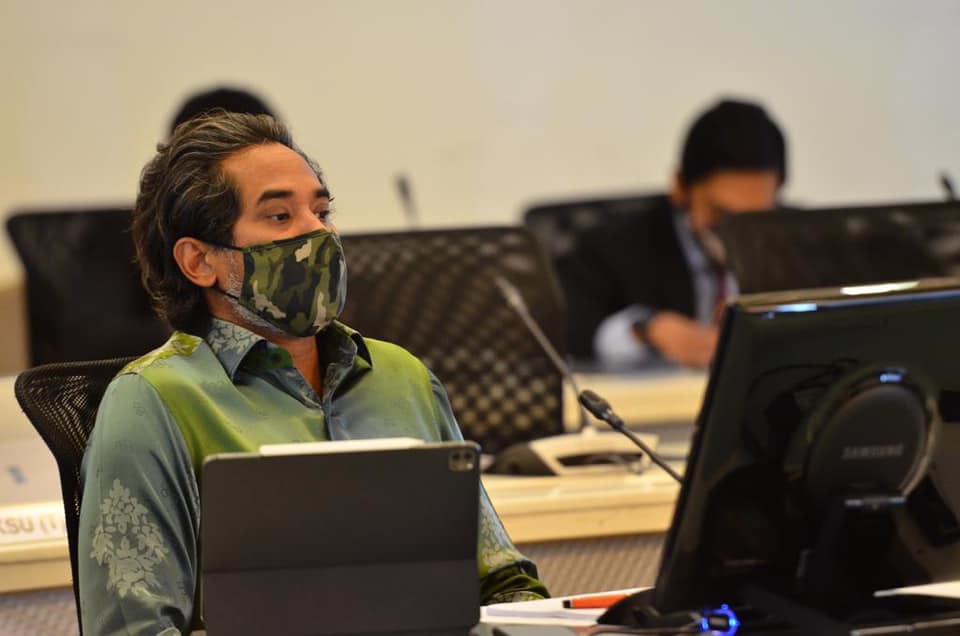KUALA LUMPUR, Jan 6 — Urban areas in Malaysia will receive Covid-19 vaccines first, the ultra-cold Pfizer-BioNTech shot, while the AstraZeneca vaccines arriving later will be deployed to rural communities, Khairy Jamaluddin said.
The minister of science, technology, and innovation said the Covid-19 Vaccine Supplies Access Guarantee Special Committee (JKJAV) has managed to identify 55 locations nationwide to store the Pfizer-BioNTech vaccine.
“So, Pfizer vaccines will probably be in urban areas because it requires the ultra-cold freezers. AstraZeneca, because it can be kept in a normal refrigerator, we will deploy that to rural areas,” Khairy said yesterday during his press conference in Parliament on Malaysia’s Covid-19 vaccine procurement.
The Pfizer-BioNTech vaccine, of which Malaysia has managed to procure 12.8 million doses for 20 per cent of the population, requires a storage temperature of minus 70 degrees Celsius.
The AstraZeneca-Oxford University vaccine, which has been procured for 20 per cent of the population (10 per cent through direct procurement and 10 per cent through COVAX), can be stored at normal fridge temperature of between two and eight degrees Celsius.
The first shipments of the Pfizer-BioNTech vaccine will be delivered to Malaysia by the end of next month, while the Covid-19 vaccines by UK pharmaceutical company AstraZeneca and Oxford University, procured under the global COVAX facility, are expected to arrive in Malaysia between March and June. The first orders of shots procured directly from AstraZeneca will be delivered in the first quarter of this year.
According to Khairy, the government will be spending an additional RM16.6 million to purchase ultra-low temperature freezers, cold boxes, and other related medical supplies for the cold chain facility. The Malaysian government’s purchasing agreement with American pharmaceutical giant Pfizer is inclusive of delivery to multiple vaccination sites.
“Pfizer delivers to the point of vaccination; storage is our responsibility,” the minister said.
“Cold storage facility, we are estimating about one freezer RM70,000 to RM80,000 per freezer. We need to spend this money to store the vaccine.”
Khairy, who is also the co-chairperson of JKJAV, said that Malaysia is not that late in getting Covid-19 vaccines.
He pointed out that Singapore managed to place bets and make advance purchase agreements with Pfizer, Moderna, and Sinovac because they had a budget of SG$1 billion (RM3.037 billion) for a population of three to four million people, as compared to Malaysia, which has a similar budget but for a population of 30 million people.
“I could not place the bets like Singapore placed. In order to be responsible, we could not do that, that’s why Singapore went first.”
Singapore started their Covid-19 vaccination programme last December 30, whereby health care workers were the first to receive the Pfizer-BioNTech shots.
However, Khairy said that he did not want Malaysia to be the first in getting the Covid-19 vaccine so that the government can learn from the problems faced by other countries in rolling out their immunisation campaigns.
“We also don’t want to be the first country out there because we also want to learn as you’ve seen in the news,” Khairy said.
“There’s been a lot of problems in terms of logistics in the United States, United Kingdom. There’s been wastages, vials thrown away and we want to learn from experience to ensure that once we start in February we can get it as right as possible.”
Canada, which aimed to vaccinate the majority of its population by the end of the third quarter this year, is seeing a major delay in its Covid-19 vaccination rollout, reportedly due to poor planning and leadership.
The US similarly failed its target of vaccinating 20 million people against the coronavirus by the end of December 2020. According to the Centers for Disease Control and Prevention (CDC)’s Covid Data Tracker, as of yesterday, out of 15.4 million doses distributed in the US, only about 4.6 million people have been vaccinated (first dose received).








